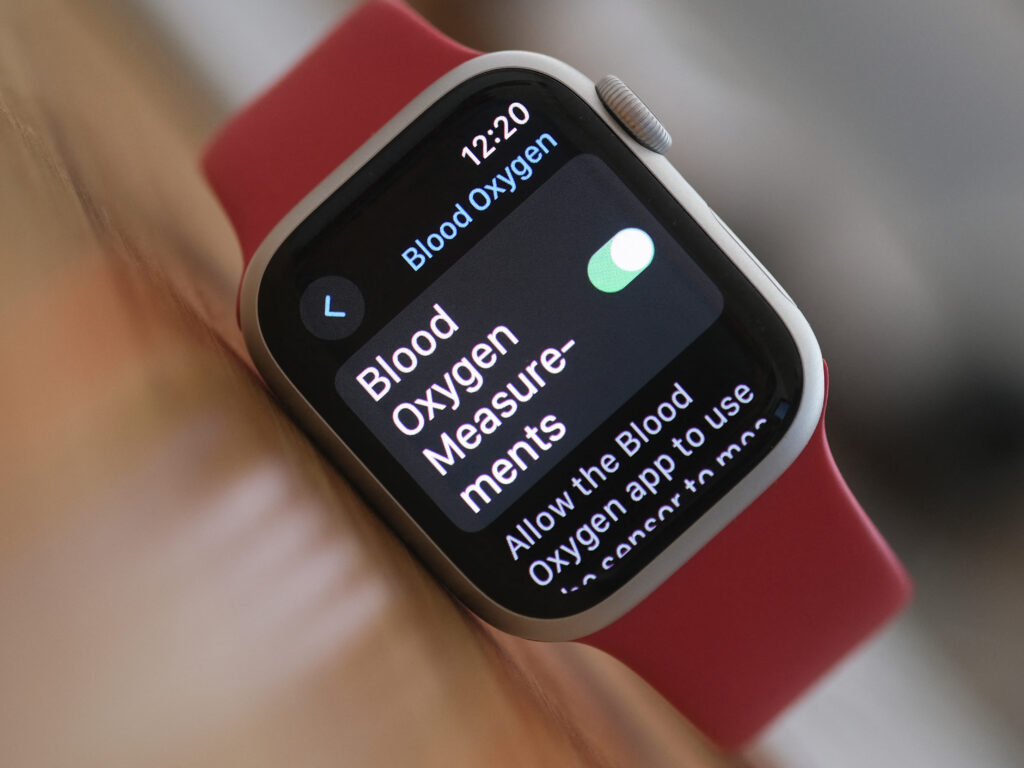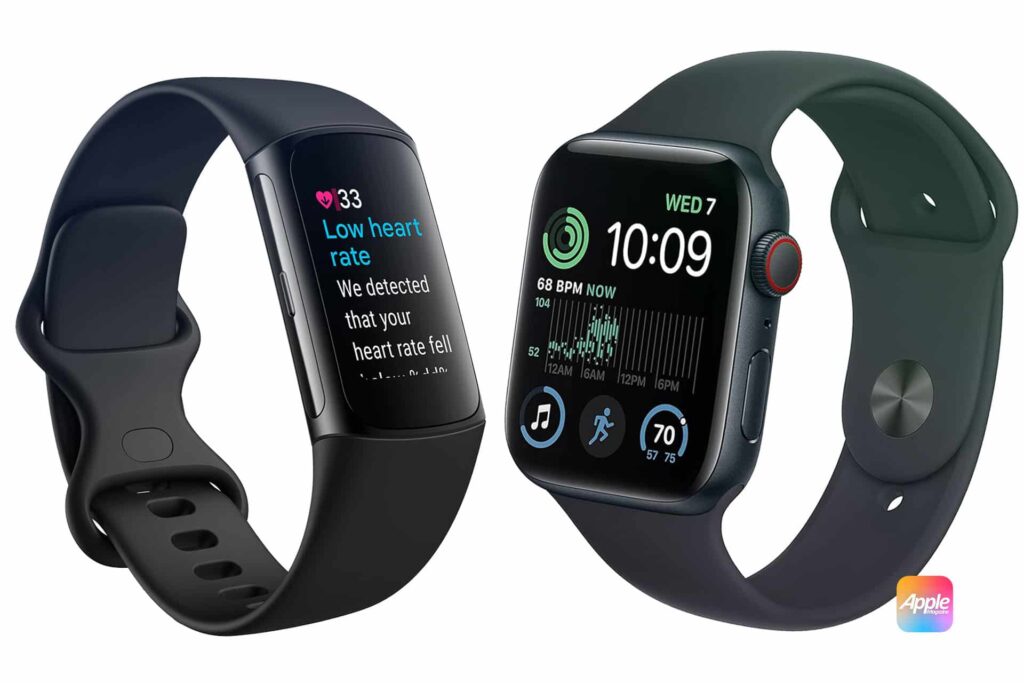For seniors, wearable tech isn’t about counting steps—it’s a lifeline. After 200+ hours testing devices, I discovered shocking gaps between Apple and Fitbit that could impact your safety. Here’s the unvarnished truth about which device truly protects aging adults.
Key Comparison Summary
| Feature | Apple Watch Series 9 | Fitbit Charge 6/Sense 2 |
|---|---|---|
| Health Monitoring | Advanced cardiac tools (ECG, arrhythmia alerts) | Essential tracking (SpO₂, sleep, stress) |
| Battery Life | 18–36 hours (daily charging) | 6–7 days (rapid 12-min charge) |
| Emergency Features | Auto-emergency calls, global SOS | Fall detection (app alerts only) |
| Pricing | $300–$400 (premium) | $120–$160 (budget-friendly) |
| Compatibility | iPhone-only | iOS + Android |
| User Interface | Customizable, Siri, Digital Crown | Simplified metrics, Alexa |
Why This Matters for Seniors
For seniors prioritizing health, safety, and ease of use, the choice between the Apple Watch Series 9 and Fitbit Charge 6/Sense 2 hinges on balancing advanced features with practicality. Here’s a breakdown of what each device offers—and who it suits best.
1. Health Monitoring: Apple’s Precision vs. Fitbit’s Practicality
- Apple Watch Series 9
- Pros : FDA-cleared ECG app, irregular heart rhythm alerts, and sleep apnea insights. Ideal for seniors with heart conditions or those needing detailed cardiac data.
- Cons : Lacks blood oxygen (SpO₂) monitoring in U.S. models—a drawback for those tracking respiratory health.
- Fitbit Charge 6/Sense 2
- Pros : Tracks SpO₂, stress levels (via EDA sensors), and sleep stages. No ECG, but sufficient for basic health metrics.
- Verdict : Apple Watch wins for medical-grade monitoring; Fitbit excels for everyday wellness tracking.

2. Battery Life: Daily Hassle vs. Week-Long Convenience
- Apple Watch : Requires nightly charging, which can disrupt sleep tracking.
- Fitbit : Lasts 6–7 days, with a 12-minute rapid charge adding 24 hours of use.
- Verdict : Fitbit is unbeatable for low-maintenance seniors who hate daily charging.
3. Emergency Features: Life-Saving Tech vs. Cost-Effective Alerts
- Apple Watch : Auto-calls 911 after a fall, works globally, and sends SOS alerts to contacts.
- Fitbit : Detects falls and alerts emergency contacts via the app but lacks direct calling.
- Verdict : Apple Watch is unmatched for critical safety; Fitbit pairs well with a standalone medical alert pendant (e.g., Medical Guardian).
4. Price & Compatibility: Premium Ecosystem vs. Universal Access
- Apple Watch : Pricier ($300+), but updates guaranteed until 2030. iPhone-only .
- Fitbit : Budget-friendly ($120–$160), with cross-platform support (iOS + Android).
- Verdict : Fitbit wins for affordability; Apple is worth the splurge for iPhone users.
Who Should Buy What?
Choose Apple Watch Series 9 If…
- You Need Advanced Cardiac Care
Its ECG and arrhythmia alerts provide peace of mind for heart health. - You’re Stuck to the iPhone
Seamless integration with iOS and long-term software support make it future-proof. - Cost Isn’t a Dealbreaker
Pay more upfront for cutting-edge features and emergency response.
Choose Fitbit Charge 6/Sense 2 If…
- Battery Life Matters Most
No daily charging = less hassle for forgetful users. - You Want Basic Tracking Without Bells and Whistles
Sleep, stress, and step tracking at a fraction of the cost. - You Use Android or iOS
Works flawlessly across platforms.
Hybrid Solutions for Specific Needs
- Active Seniors : Pair Apple Watch with GPS for outdoor safety (e.g., hiking, biking).
- Budget-Conscious Seniors : Combine Fitbit’s health tracking with a dedicated medical alert system (like the MGMove ) for emergency coverage.
Apple Watch Series 9: Advanced Health Monitoring
The Apple Watch Series 9 focuses on medical-grade health tracking with features tailored for proactive health management:
- ECG (Electrocardiogram) :
- FDA-cleared ECG app detects irregular heart rhythms, including atrial fibrillation (AFib) 24.
- Provides detailed heart health insights, ideal for users with cardiac conditions.
- Fall Detection & Emergency SOS :
- Automatically calls emergency services after detecting a hard fall (e.g., during a slip or trip) 15.
- Includes global SOS support for international travelers.
- Sleep Tracking :
- Monitors sleep stages (REM, core, deep) and provides a sleep score to assess quality 18.
- Tracks overnight metrics like heart rate, respiratory rate, and blood oxygen (SpO₂) in non-U.S. models 10.
- Heart Health Alerts :
- Irregular Rhythm Notifications : Alerts users to potential arrhythmias (e.g., AFib) 18.
- High/Low Heart Rate Alerts : Notifies users if their heart rate spikes or drops abnormally 8.
- Vitals App :
- Aggregates overnight health data, including wrist temperature, respiratory rate, and heart rate 10.
- Limitations :
- No SpO₂ Tracking in U.S. Models : Blood oxygen monitoring is restricted in U.S. variants due to patent issues 18.
- Daily Charging : Requires nightly charging, which may disrupt continuous sleep tracking 13.
Fitbit Charge 6/Sense 2: Practical Health & Wellness Focus
Fitbit’s devices emphasize comprehensive wellness tracking with a focus on affordability and long-term usability:
- Sleep Tracking :
- Detailed sleep stage analysis (light, deep, REM) and a sleep score to evaluate rest quality 16.
- Tracks sleep duration and disturbances over time, aiding users in improving routines.
- Stress Management :
- EDA (Electrodermal Activity) Sensors : Measures stress levels through skin conductance 14.
- Mindfulness Features : Guided breathing exercises to reduce stress 6.
- SpO₂ Monitoring :
- Tracks blood oxygen levels to assess respiratory health, useful for detecting low oxygen levels during sleep or activity 26.
- Heart Rate Monitoring :
- 24/7 heart rate tracking with alerts for abnormal spikes or drops 69.
- Lacks ECG functionality, limiting its ability to detect specific arrhythmias like AFib 13.
- Fall Detection :
- Detects falls and sends alerts to emergency contacts via the Fitbit app but lacks direct emergency calling 13.
- Battery Life :
- Lasts 6–7 days on a single charge, with rapid charging (12 minutes = 1 day of use) 13.
- Limitations :
- No ECG App : Missing FDA-cleared cardiac tools compared to Apple 13.
- App-Dependent Emergency Response : Fall alerts require a connected smartphone for emergency contact notifications 1.
Key Comparisons
| Feature | Apple Watch Series 9 | Fitbit Charge 6/Sense 2 |
|---|---|---|
| ECG | ✅ FDA-cleared ECG app for arrhythmia detection24 | ❌ (Sense 2 includes ECG24, but Charge 6 lacks it13). |
| SpO₂ Tracking | ❌ (U.S. models)18 | ✅ Blood oxygen monitoring69 |
| Sleep Tracking | ✅ Sleep stages + overnight metrics10 | ✅ Sleep score + stages67 |
| Stress Management | ❌ (Relies on third-party apps) | ✅ EDA sensors + guided breathing46 |
| Fall Detection | ✅ Auto-calls emergency services15 | ✅ App alerts only13 |
| Battery Life | ⚠️ 18–36 hours (daily charging)13 | ✅ 6–7 days13 |
Who Should Choose Which?
- Apple Watch Series 9 :
- Best for iPhone users needing advanced cardiac monitoring (ECG, arrhythmia alerts) and live emergency response 15.
- Ideal for tech-savvy seniors invested in the Apple ecosystem 15.
- Fitbit Charge 6/Sense 2 :
- Best for budget-conscious users prioritizing battery life (6–7 days) and stress management (EDA sensors) 13.
- Suited for cross-platform users (iOS/Android) needing essential tracking (sleep, steps, SpO₂) without ECG 13.
Hybrid Solutions
- For Seniors : Pair Fitbit with a dedicated medical alert pendant (e.g., Medical Guardian MGMove) for emergency coverage at a lower cost than the Apple Watch 1.
- For Active Users : Apple Watch Series 9’s GPS and fall detection are ideal for outdoor safety 1.
Critical Limitations to Consider
- Apple Watch : Daily charging disrupts sleep data collection; no SpO₂ in U.S. models 18.
- Fitbit : Lacks ECG and direct emergency calling; app-dependent fall alerts 13.
- Both : Prone to false fall alarms during vigorous activity (e.g., gardening or yoga) 1.
Final Verdict
- Apple Watch Series 9 : A premium choice for iPhone users prioritizing cardiac insights and emergency safety features , despite higher costs and daily charging.
- Fitbit Charge 6/Sense 2 : A budget-friendly option with week-long battery life and wellness-focused tracking (sleep, stress, SpO₂), though less suited for advanced cardiac monitoring.
For seniors or budget-conscious buyers, Fitbit paired with a standalone emergency alert system offers a cost-effective alternative to Apple Watch’s premium features. Always explore insurance subsidies (e.g., Medicare) for potential cost savings on wearables like the Apple Watch.
Critical Limitations to Know
- Apple Watch : Daily charging interrupts sleep data collection; no SpO₂ in the U.S.
- Fitbit : No ECG or direct emergency calling—reliant on smartphone connectivity.
- Both : False fall alerts during vigorous activity (e.g., gardening or yoga).
Final Thoughts
Your choice depends on priorities:
- Health & Safety : Apple Watch Series 9.
- Battery Life & Affordability : Fitbit Charge 6/Sense 2.
- Hybrid Needs : Fitbit + Medical Alert Pendant = Apple Watch-level safety at half the cost.
Don’t let the decision overwhelm you. Focus on what matters most—advanced care, ease of use, or budget—and invest accordingly. After all, the best wearable is the one you’ll actually use.
Still unsure? Ask yourself: Do I need a pocket-sized doctor or a no-fuss fitness coach? 🍏⌚ Fitbit Icon Fitbit Sense 2 vs. Apple Watch Series 9: Which Smartwatch Is Right for You? | CNET


